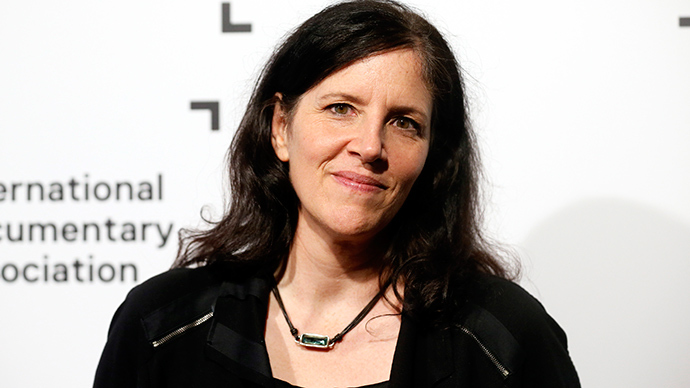Snowden documentary filmmaker sues US over years of harassment

Oscar-winning film director Laura Poitras is suing the US government to find out why she has been searched, questioned and subjected to enhanced security screenings over the past six years, being stopped over 90 times during the course of her travels.
“I am filing this lawsuit because the government uses the US border to bypass the rule of law,” said Poitras in a statement. “This simply should not be tolerated in a democracy.”
Poitras is a professional journalist and Academy Award-winning documentary filmmaker. Her work has also received a Pulitzer Prize and a MacArthur “genius” grant. Poitras’s documentary about National Security Agency whistleblower Edward Snowden, Citizenfour, won her an Oscar earlier this year.
READ MORE: Snowden documentary CitizenFour grabs Oscar
In her federal complaint, Poitras, an American citizen, said she was searched and questioned every time she entered the US between 2006 and 2012, on more than 40 occasions. She was also subjected to secondary security screening on more than 50 occasions while leaving the US, outside the US during the course of international travel, and on domestic flights in the US.
Security agents gave Poitras different reasons for why she was being stopped. They told her she had a criminal record even though she has never been arrested. Another time she was told her name appeared in a national security threat database, and on another occasion that she was on the government’s no fly list, according to the complaint filed in a US District Court in Washington, DC on Monday.
She was often detained for hours during these secondary security screenings, and has had a laptop, camera, mobile phone and reporter notebooks seized and their contents copied. She was once allegedly threatened with being handcuffed for taking notes during her detention, as border agents said her pen could be used as a weapon. The searches were conducted without a warrant, often without explanation, and no charges were ever brought against her.
“I am also filing this suit in support of the countless other less high-profile people who have also been subjected to years of Kafkaesque harassment at the borders,” said Poitras. “We have a right to know how this system works and why we are targeted.”
For the past decade, Poitras has been “documenting post-September 11 America” with films like Citizenfour. Other documentaries featured the work of dissident Chinese artist Ai Weiwei, journalist Jacob Appelbaum, and NSA whistleblower William Binney. She has also made documentaries about the military commissions for Guantanamo Bay prison and the US’ military occupation of Iraq.
Not only is Snowden considered a criminal, apparently the journalists that covered him are too. Filmaker sues US gov http://t.co/aMDWvsIYxH
— Andrew Brown (@Andy_Ed_Brown) July 13, 2015
A year ago, Poitras filed a freedom of information request (FOIA) for records naming or relating to her, including case files, but agencies either said they had no records or didn’t respond to her request at all. The FBI, however, did respond in May, saying they had six pages relevant to the request but wouldn’t release the records because of grand jury secrecy rules.
“We are suing the government to force it to disclose any records that would show why security officials targeted Poitras for six years,” said Jamie Lee Williams, an Electronic Frontier Foundation attorney who is representing Poitras in the case.
“By spurning Poitras’ FOIA requests, the government leaves the impression that her detentions were a form of retaliation and harassment of a journalist whose work has focused on US police in the post-9/11 world.”
The complaint was filed against the Department of Homeland Security, the Department of Justice, and the Office of the Director of National Intelligence.












